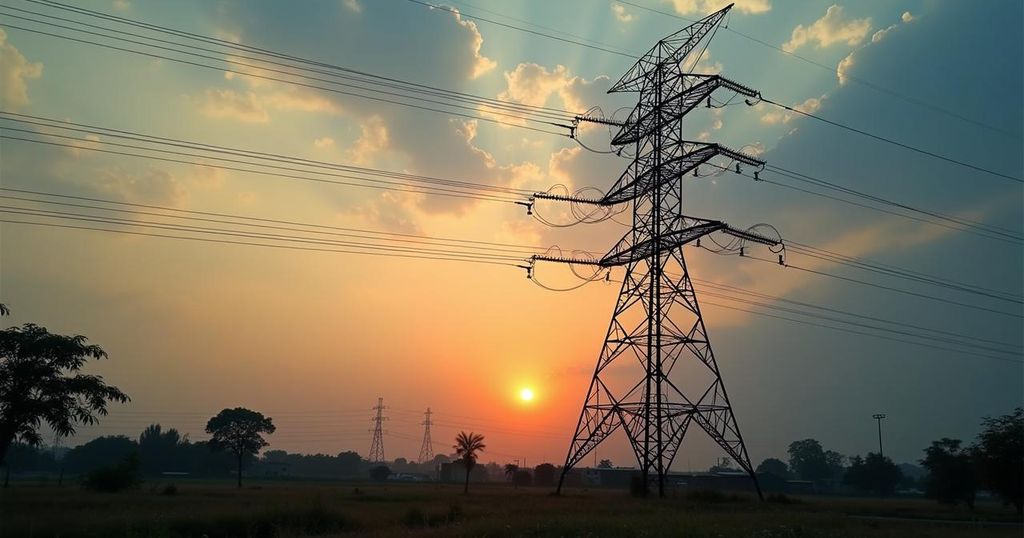Benin Republic and Togo owe Nigeria $5.79 million for electricity consumed in Q2 2024, according to NERC. From a $15.60 million invoice, they remitted $9.81 million, translating to a remittance rate of 62.88 percent. The report also highlights a decrease in government subsidy obligations and varying collection efficiencies among distribution companies in Nigeria.
The Nigerian Electricity Regulatory Commission (NERC) has reported that international bilateral electricity clients in Benin Republic and Togo owe Nigeria a total of $5.79 million for electricity consumed during the second quarter of 2024. According to the latest report analyzed by our correspondent, from an invoice totaling $15.60 million issued between April and June, these clients managed to remit only $9.81 million. The customers in question include Para-SBEE in Benin Republic, which owes $1.23 million; Transcorp-SBEE in Benin, which also remitted fully its $4.25 million bill; Mainstream-NIGELEC in Togo, with an outstanding amount of $1.09 million; and Odukpani-CEET in Togo, which did not make any payments during this period. The report highlights that Para-SBEE paid 71.21 percent of its billed amount of $4.29 million while Mainstream-NIGELEC settled 69.72 percent of $3.59 million. In the previous quarter, it was noted that none of these four international electrical consumers had made payments on the cumulative invoice of $14.19 million issued. However, the second quarter report indicated that some clients settled older debts, with international customers cumulatively paying $16.65 million towards outstanding invoices from prior quarters. In total, the international bilateral customers paid $9.81 million against the invoice, achieving a 62.88 percent remittance rate. Domestic bilateral clients, during the same timeframe, remitted 65.07 percent of their cumulative invoice totaling N1.30 billion against a billing of N1.99 billion. Moreover, the NERC reported a significant reduction in the Federal Government’s subsidy obligation, which decreased by N253.24 billion from N633.30 billion (90.57 percent of the total Genco invoice) to N380.06 billion (52.51 percent of the total Genco invoice) primarily due to tariff reviews by the government affecting Band A customers while other bands remain unchanged since December 2022. The overall revenue collected by all Distribution Companies (Discos) in Q2 2024 reached N431.16 billion, reflecting a collection efficiency of 79.31 percent, a slight increase compared to the 79.11 percent collected in Q1 2024. Notably, Ikeja and Eko Discos reported the highest collection efficiencies at 94.67 percent and 88.03 percent, respectively, while Yola Disco had the lowest at 55.67 percent.
The financial interactions between Nigeria and its regional neighbors, particularly concerning electricity provision, highlight the economic reliance and obligations tied to energy consumption. The debt accumulation among international clients can reflect broader trends in energy management and fiscal practices within the West African region. This context illustrates the importance of prompt payments by these customers, which can significantly impact Nigerian energy providers and overall electricity infrastructure funding.
In conclusion, the electricity debt owed by Benin and Togo to Nigeria demonstrates ongoing challenges in international energy transactions, highlighting the need for improved remittance practices among clients. The reduction in government subsidies also underscores shifts in fiscal policies and energy tariffs, suggesting that both domestic and international clients must comply with financial obligations to ensure the sustainability of Nigeria’s electricity generation and distribution framework.
Original Source: punchng.com







